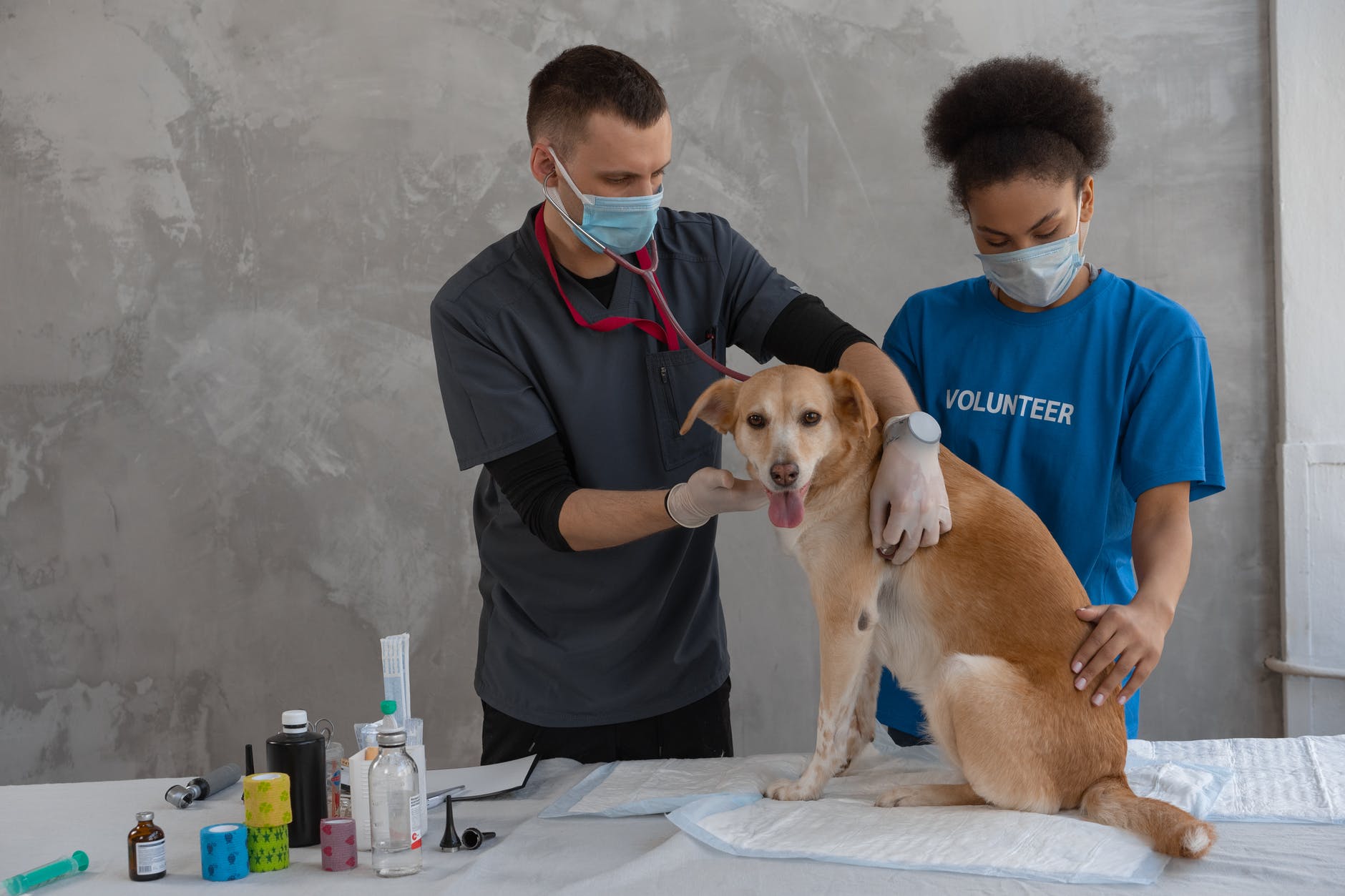Are you a cat or dog owner who’s unsure when to book your pet’s next wellness exam? The health of your furry friend is essential, and regular, preventative care can make a world of difference in their quality of life. In this comprehensive guide, we’ll cover everything you need to know about cat and dog wellness exams, including the importance of scheduling them and the various factors influencing the frequency. So, let’s dive right in and ensure that you’ve got the knowledge to keep your pet in tip-top shape.
Purpose of a Pet Wellness Exam
Health Assessment of Pets
Pet wellness exams are like an annual check-up for humans. Veterinarians use these visits to assess the overall health of your pet and identify any potential health risks before they become major problems. These assessments are integral for providing the best possible care and helping to extend the life of your beloved pet.
Identifying Signs of Illness
Good pet care is not only about preventing illness but recognizing the early signs of health issues. Regular wellness exams allow your veterinarian to detect any abnormalities or warning signs of illness, and provide necessary treatment before it becomes a serious concern.
Preventative Care for Pets
A key component of wellness exams is the focus on preventative care. This involves vaccinations, dental care, and parasite control to minimize the chances of your pet contracting common diseases or suffering from illness and discomfort.
Building Trust between Pets, Owners, and Vets
Pet wellness exams establish an essential connection between your pet, yourself, and the veterinarian. This relationship fosters trust so that your pet feels more comfortable and less stressed during visits. It also allows you to ask questions, address concerns, and receive advice on how to provide the best care for your companion.
When to Start Wellness Exams for Puppies and Kittens
Importance of Early Check-ups
Early wellness exams for puppies and kittens are crucial for their lifelong health. Generally, your pet’s first check-up should be scheduled within a few weeks of bringing them home. At this stage, the veterinarian will perform an initial examination, discuss preventative care, and set a vaccination schedule.
Basic Vaccination Schedule
Your vet will administer age-appropriate vaccinations during these early wellness visits. Vaccinations protect your pet from common diseases like distemper, parvovirus, and rabies. The vet will also assess the need for additional non-core vaccinations, such as those for feline leukemia or canine influenza, based on your pet’s specific environment and lifestyle.
Spaying and Neutering Recommendations
When establishing a wellness regimen for puppies and kittens, veterinarians will discuss the benefits and recommended timeline for spaying or neutering procedures. These include preventing pet overpopulation, reducing the risk of certain types of cancer, and eliminating undesirable behaviors like marking territory and aggression.
Wellness Exam Frequency: Adult Cats and Dogs
Annual Check-ups for Generally Healthy Pets
For generally healthy adult pets, a yearly wellness exam is the standard recommendation. Routine exams ensure that your cat or dog receives the necessary preventative care and allows the vet to monitor any potential health concerns.
Specific Needs for Different Breeds
Some breeds, particularly larger or giant dog breeds, may require more frequent check-ups due to being predisposed to certain health issues. These breeds may benefit from biannual exams to ensure their continued health and well-being.
Importance of Dental Care
Dental care for pets is often overlooked but is a critical aspect of their overall health. Annual exams provide the opportunity for your veterinarian to clean your pet’s teeth professionally and monitor any signs of dental disease. This helps prevent more serious issues such as tooth loss, infection, or bacterial infections entering the bloodstream.
Weight Management Guidance
During wellness exams, your veterinarian can provide guidance on weight management for your pet. This ensures your pet remains at a healthy weight, reducing the risk of obesity-related issues such as diabetes, heart disease, and joint problems.
Senior Pet Care and Wellness Exams
Increased Frequency of Vet Visits
As pets age, they become more susceptible to health issues and disease. Typically, it is recommended to increase the frequency of wellness exams to every six months for senior cats and dogs. The earlier any potential issues are identified and treated, the better the prognosis is likely to be.
Common Age-related Issues to Monitor
Some common age-related issues include joint problems (arthritis), dental disease, weight management difficulties, cognitive decline, and the development of tumors or cancers. Regular wellness exams and diagnostic testing can help detect and address these concerns early on.
Adjusting Care for Senior Pets
As your pet becomes a senior, it is essential to modify their care to meet their changing needs. This may involve adjusting their diet, increasing indoor activities and enrichment, or managing pain and discomfort related to age-related ailments.
Recognizing Signs of Illness in Your Pet
Signs that might Indicate Illness in Cats
Cats tend to be quite good at hiding when they’re experiencing discomfort or illness. However, there are some common indicators that might suggest they’re unwell. These include vomiting, diarrhea, changes in appetite, weight loss or gain, lethargy, or changes in litter box habits. It’s essential to bring these symptoms to your veterinarian’s attention if they persist or worsen, so they can evaluate your pet for any underlying health issues.
Signs that might Indicate Illness in Dogs
Dogs, on the other hand, may display more noticeable signs of illness. Some symptoms to watch for include coughing, sneezing, difficulty breathing, loss of appetite, vomiting, diarrhea, changes in energy levels, and ignoring commands. By identifying these signs early, you can intervene more effectively with veterinary care to get your pup back on the path to health.
When to Seek Immediate Veterinary Care
In some cases, your pet may exhibit severe symptoms that require immediate veterinary attention. Such situations may involve difficulty breathing, extreme lethargy, inability to urinate or defecate, seizures, or signs of acute pain. In these instances, reach out to an emergency veterinarian immediately to ensure your pet receives appropriate care.
Preparing for Your Pet’s Wellness Exam and What to Expect
To ensure your pet’s routine wellness exam goes smoothly, it’s essential to gather any relevant information about your pet’s health, diet, and exercise routine. Your veterinarian may ask questions about changes in behavior or any symptoms suggesting illness. During the wellness exam, your vet will perform a physical examination of your pet, checking their eyes, ears, mouth, heart, lungs, and joints. Your veterinarian may also recommend bloodwork, imaging tests, or fecal tests to gather more information about your pet’s overall health.
Incorporating Additional Services in Wellness Exams, such as Cat and Dog Wellness Exams and Routine Pet Exams
Many veterinary practices offer additional services during wellness exams, like routine pet exams in Palmyra, to ensure the comprehensive care of your pet. This may include routine preventative care such as flea, tick, and heartworm treatments or additional diagnostic tests that benefit your pet’s health.
Veterinary Internal Medicine Services and the Importance of Pet Health Certificates
On this link, you’ll find information about veterinary internal medicine services that may be necessary for your pet. These specialized services may involve in-depth diagnostic testing, targeted treatment plans, and ongoing monitoring of health conditions. Additionally, if you plan on traveling with your pet, obtaining a pet health certificate for travel is essential. A health certificate for dogs flying or a certificate for your cat is necessary for airline travel and may be required when crossing state or country borders. Your veterinarian can help you understand the requirements for pet travel and provide the necessary documentation.
Conclusion
Keeping your pet healthy and happy is a priority for every dedicated pet owner. Booking regular wellness exams with your veterinarian will help ensure your pet remains in good health and receives appropriate care throughout their life. Remember, preventative care plays a vital role in the longevity and well-being of your furry family member, so don’t hesitate to make that appointment with your vet and prioritize their health.




